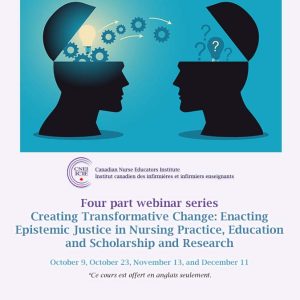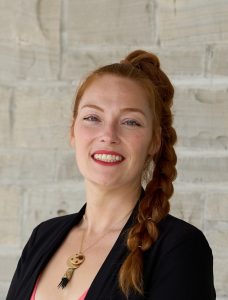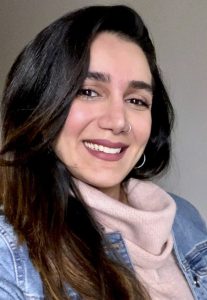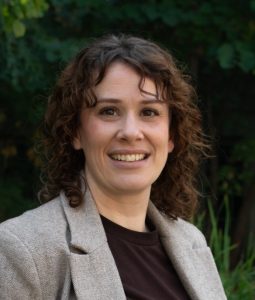home » Programs » Webinars » 4 Part Webinar Series-Creating Transformative Change: Enacting Epistemic Justice in Nursing Practice, Education and Scholarship and Research
 Dates:
Dates:Webinar Part 1: Thursday, October 9th
Webinar Part 2: Thursday, October 23rd
Webinar Part 3: Thursday, November 13th
Webinar Part 4: Thursday, December 11th
Reoccurring 11:00am-1:00pm ET
This four-part webinar series will provide nurse educators, researchers, and institutional leaders with practical strategies for integrating epistemic justice into nursing education, research, and institutional practices. Each session will build upon the previous one, offering participants the knowledge and tools necessary to create more inclusive, equity-driven approaches in nursing.
| Workshop | Topics |
| Part 1: Teaching Nursing Students to Use an Epistemic Justice Lens in Evidence-Based Practice | This session will introduce strategies for teaching nursing students to incorporate epistemic justice in their evidence-based practice. We will review an Open Educational Resource (OER) developed for this purpose, covering key concepts such as positionality, epistemic injustice, and epistemicide in nursing. Educators will gain access to instructional guides, case studies, and innovative assessments designed to evaluate students’ application of an epistemic justice lens. |
| Part 2: Integrating Epistemic Justice Across Curricula and Pedagogical Approaches | This webinar will focus on revising nursing curricula to elevate historically silenced voices, decolonizing reading lists, and implementing innovative assessments that recognize diverse knowledge production practices. We will discuss how educators can role model epistemic justice in their teaching methodologies and develop equity-informed course designs. |
| Part 3: Enacting Epistemic Justice in Knowledge Production and Research Practices | Participants will explore strategies for mentoring graduate students in applying an epistemic justice lens to research, including systematic and scoping reviews. We will also discuss how to integrate epistemic justice into scholarship, particularly in research on teaching and learning. |
| Part 4: Systemic Integration of Epistemic Justice for Institutional Transformation | The final session will examine a team-based decolonization approach to revising nursing curricula and institutional policies. We will share insights on developing an epistemic justice-focused course, modifying ICAP (Inclusive Curricular and Assessment Practices), and enacting meaningful institutional change. |

Ashley McKeown, RN, MN-ANP, CCNE, Lecturer, Arthur Labatt Family School of Nursing & Teaching Fellow, Center for Teaching and Learning, Western University
Ashley McKeown (she/her) is a Lecturer and Teaching Fellow at the Arthur Labatt Family School of Nursing at Western University. She leads the development of an epistemic justice-based curriculum aimed at redefining “best evidence” and research competencies in nursing education. Ashley’s scholarship examines how integrating epistemic justice into evidence-based practice fosters cultural humility and promotes culturally safe healthcare. She has been invited to teach students and faculty across various health professional programs about practicing epistemic justice and serves as co-chair of the Decolonization, Anti-Racism, and Anti-Oppression (DARAO) Committee at the Arthur Labatt Family School of Nursing. Ashley will facilitate all sessions.

Shokoufeh Modanloo, RN, PhD, Assistant Professor, Arthur Labatt Family School of Nursing, Western University
Shokoufeh Modanloo (she/her) is an Assistant Professor at Western University whose research advances health justice by centering the voices of equity-deserving communities in healthcare policy and practice. She uses community-based participatory approaches to dismantle health inequities, particularly for refugee and immigrant women. In her educational leadership, she collaborates with advocacy organizations and individuals with lived experience to co-create nursing curricula that challenge dominant narratives and foster reciprocal learning. As co-chair of DARAO, Shokoufeh co-leads the development of an inclusive case study OER that supports educators in integrating diverse perspectives into health professional education. She will facilitate Lesson 3.

Heather Campbell, BEd, MLIS, Curriculum Librarian, Western Libraries & Curriculum Specialist
Centre for Teaching and Learning, Western University
Heather Campbell (she/her) is the Curriculum Librarian at Western Libraries and a Curriculum Specialist at the Centre for Teaching and Learning. She has played a key role in embedding epistemic justice into institutional policies and has led the development of a knowledge justice-based curriculum at Western Libraries. Heather has also authored a forthcoming decolonization guide designed to support faculty in enacting systemic change in their teaching. Her curriculum development work has influenced decolonial initiatives across Western University. She will facilitate Lessons 1, 2, and 4.

Aisha Haque, BEd, Director, Centre for Teaching and Learning, Western University
Aisha Haque (she/her) is the Director of the Centre for Teaching and Learning at Western University, where she designs faculty development programs focused on equity, decolonization, and intercultural pedagogies. Her research is widely recognized, including a co-authored publication on intercultural teaching competence that received the Christine A. Stanley Award for Research on Diversity and Inclusion. She has delivered over 30 keynotes and workshops across Canada, Hong Kong, Japan, and the U.S. on equity, diversity, and inclusion (EDI). Aisha will facilitate Lessons 2 & 4.

Kathryn Holmes, MI, Teaching & Learning Librarian, Western Libraries, Western University
Kathryn Holmes (she/her) is a Teaching and Learning Librarian who supports the Faculty of Health Sciences at Western University. As a member of Western Libraries’ Knowledge Synthesis Team, she has been actively involved in integrating an epistemic justice lens into systematic and scoping review methodologies. She has also led numerous undergraduate and graduate sessions on applying this approach to ensure diverse voices inform health professional practice. She will facilitate Lessons 1 and 3.

Amy Horton, MN, NP-PHC, Associate Director, Undergraduate BScN Programs,Arthur Labatt Family School of Nursing, Western University
Amy Horton (she/her) is the Associate Director of Undergraduate BScN Programs at the Arthur Labatt Family School of Nursing. A leader in nursing education, Amy chairs multiple provincial nursing curriculum committees and was awarded the WeRPN President’s Award for her contributions. She is the nursing lead for a collaborative decolonization initiative at Western University, integrating epistemic justice principles into all undergraduate nursing curricula in partnership with the Centre for Teaching and Learning and Western Libraries. Amy will facilitate Lesson 4.
